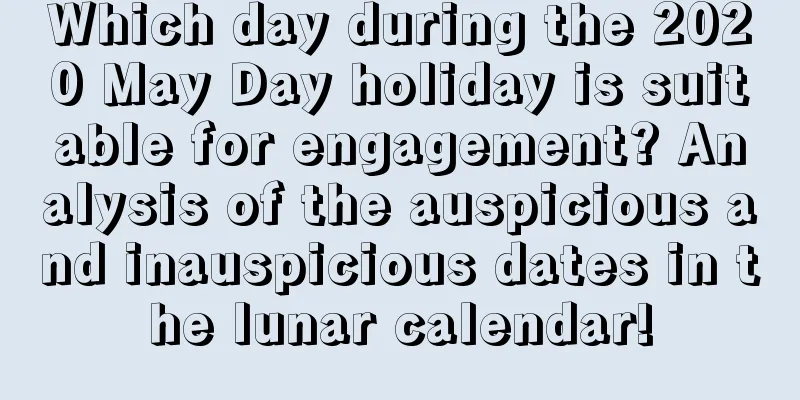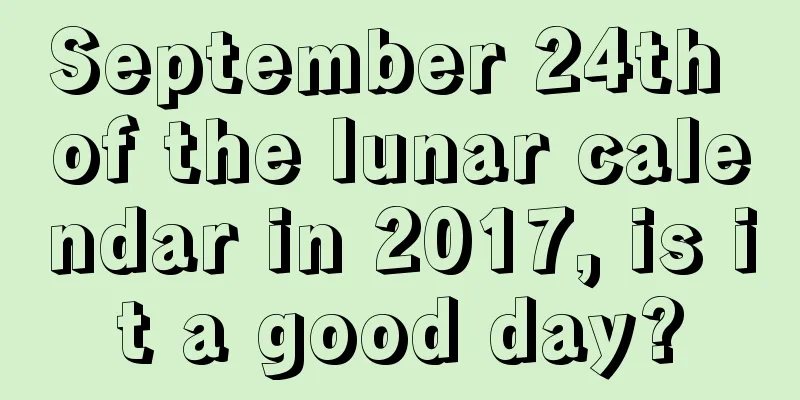What is the meaning and legend of the Dragon Raising its Head on February 2?

The second day of the second lunar month is commonly known as "Dragon Raising its Head" and is a traditional folk festival. So what is the meaning and legend of the Dragon Raising its Head on the second day of the second lunar month? What is the story behind the Dragon Raising its Head on February 2? Shuimoxiansheng.com provides you with more content related to the second month of the lunar calendar in 2019. Everyone is welcome to learn about it together!What is the meaning of the Dragon Raising its Head on February 2?"Dragon" refers to the seven stars of the Eastern Azure Dragon among the twenty-eight constellations. At the beginning of the first month of mid-spring every year, the "Dragon Horn Stars" (i.e., the first and second stars of the Jiao constellation) appear on the eastern horizon at dusk, so it is called "the dragon raising its head". "Mao" is one of the twelve Earthly Branches in the Ganzhi calendar, with its beginning and end at Jingzhe and the Spring Equinox. Its five elements belong to wood, and its hexagram is Zhen. "Mao" is the elephant of growth and development, representing vigorous vitality, as it is said in the Book of Laws: "Mao means lush, meaning that all things are lush." Since ancient times, people have celebrated the day of "Dragon Raising its Head" in mid-spring to show their respect for the dragon's blessings, good weather, and good harvests.The saying of the dragon raising its head comes from ancient astronomy. In ancient times, people used the twenty-eight constellations to indicate the positions of stars and judge the seasons based on them. The ancients divided the constellations near the ecliptic into 28 groups, indicating the positions of the sun, moon and stars in the sky, commonly known as the "28 Mansions", which were used as a reference for celestial observations. The "Twenty-Eight Mansions" are divided into four major groups according to the four directions of east, west, south and north, producing the "Four Symbols": Azure Dragon in the East, White Tiger in the West, Vermillion Bird in the South and Black Tortoise in the North. "宿" means to live. If you observe the movement of the moon, it basically stays in one of the 28 constellations for one night every day, and it takes about a month for all 28 constellations to take their turn, so it is called "Su". The seven constellations in the east are called: Jiao, Kang, Di, Fang, Xin, Wei and Ji. They form a complete dragon-shaped constellation, and people call it the Eastern Canglong Dragon. Among them, Jiao represents the dragon's horns, Kang represents the dragon's throat, Di represents the dragon's claws, Xin represents the dragon's heart, Wei and Ji represent the dragon's tail. In winter, the seven stars of the Azure Dragon disappear below the horizon and cannot be seen after dusk. During the period from Jingzhe to the Spring Equinox, the Jiao constellation appears on the eastern horizon at dusk. At this time, the whole body of the Canglong is still hidden below the horizon, and only the horns are beginning to appear, so it is called the Dragon Raising its Head. What are the legends about the Dragon Raising its Head on February 2?1. The birth of Emperor Yao. Legend has it that Emperor Yao's father, Emperor Ku (Emperor Jun), had four queens: Jiang Yuan, Jian Di, Qing Du, and Chang Yi. Originally, Chang Yi had the lowest status, but since she gave birth to a son, everyone looked at her differently. Qingdu has always been worried about not having a son. Someone told her that praying for a child at the Goddess Temple is very effective, and as long as you are sincere, there is nothing you can't achieve. Qingdu did as the witch said. After dinner on the Lantern Festival, he went to the temple to place offerings, then kowtowed three times respectfully, put his hands together, and prayed to the gods to give him a child.Let me explain this from two perspectives. One year there was a severe drought and the people lived in hardship. There was a red dragon in the sky. When he saw the miserable conditions of the people on earth, he felt pity and secretly made it rain. When the Jade Emperor found out about this, he suppressed the red dragon under a mountain. The people pleaded for the Red Dragon, and the Jade Emperor said, "Unless the golden beans bloom." On the second day of the second month, an old lady came from nowhere and kept shouting, "Golden beans for sale!" People were very puzzled, and when they bought some home, they found that they were actually yellow beans. When these soybeans were fried in the pan, they crackled and bloomed. When the Jade Emperor found out, he had no choice but to release the red dragon and banish him to the mortal world. After Qingdu prayed for a child from the Goddess Temple, he looked forward to good news every day. One night, she dreamed of a red dragon following her, and from then on, she became pregnant. On the second day of the second month of the following year, there were lightning and thunder, and then the sun shone brightly. A golden light shone in the yard, and a child was born. He was named Fangxun, who later became King Yao. Fangxun was smart and clever, and had been loved since childhood. After he grew up and became an emperor, he would farm with the people on the second day of the second lunar month every year. The custom of emperors tilling the fields was thus passed down. During the Chinese New Year, the woodblock New Year picture sold at the market, "The Emperor Riding the Golden Bull", originated from this. There are many different opinions about the birth of King Yao. Later generations made up a story: Golden beans bloomed and the red dragon raised its head. On the second day of the second month, King Yao was happily born. 2. Jade Dragon Sends Sweet Rains : According to legend, after the death of Emperor Gaozong of the Tang Dynasty, Li Zhi, Wu Zetian came to power. She first made her sons Li Zhe and Li Dan the Emperor Zhongzong and Ruizong, but later deposed them one after another. In the second year of Yongchang (690 AD), he abolished the Tang Dynasty and established the Zhou Dynasty, and proclaimed himself emperor, calling himself Emperor Wu of Zhou. This incident angered the Jade Emperor, and he ordered Taibai Jinxing to tell the Dragon Kings of the four seas not to rain on earth for three years as a punishment. That year, from the Beginning of Summer to the Cold Dew, there was no rain for more than 150 days. As a result, the earth dried up and the crops died of drought. In many places, even getting water was very difficult. The people were in misery and their lives were in misery. The Jade Dragon, who was in charge of the Milky Way, could not bear to see all these tragic scenes. He risked violating the Heavenly Rules, opened his huge mouth, drank up all the water from the Milky Way, secretly made it rain, and saved the people of the world. However, this angered the Jade Emperor, who banished the Jade Dragon to the mortal world and pressed him under a mountain to suffer. There is also a stone tablet in front of the mountain, on which are engraved four sentences: "The Jade Dragon violated the rules of heaven by making rain, and should be punished by the world for thousands of years. If you want to return to the Lingxiao Palace, you must wait until the golden beans bloom." When people passed by here and read the words on the stele, they realized that the Jade Dragon brought rain to save the people, but was crushed here and suffered. In order to rescue the Jade Dragon and get him back to the sky and take control of the Milky Way again, people are determined to find the blooming golden beans, but they cannot find them. I searched and searched until the first day of the second lunar month of the following year. There happened to be a market on the street. An old lady was carrying a sack of corn kernels to the market. Because the sack was not tied tightly, it opened as she walked, and the golden corn kernels scattered all over the ground. When people saw it, they were very happy. The corn kernels looked like golden beans! If you fry it in a pan, won't golden flowers burst out? So, word spread from one person to ten people, from ten to a hundred, and everyone knew about it. Everyone agreed to take action together the next day, the second day of the second month, and pop popcorn. Yulong saw this and was very happy. He shouted, "Old man Taibai, the golden beans are blooming. Why don't you let me out?" Taibai Jinxing, with dim eyesight, took a look and saw that it was indeed the golden beans blooming. He then removed the mountain that was pressing on Yulong. Yulong took the opportunity to leap into the air and brought down the sweet rain again. From then on, it became a custom among the people. On the second day of the second lunar month, people would pop popcorn and fry beans. Adults and children alike would chant, "On the second day of the second month, the dragon raises its head, the big granaries are full, and the small granaries are overflowing." In some places, stove ash is spread into large circles in the yard, and grains are placed in the middle, which is called "storing" or "filling the granaries." The meaning is to wish for a good harvest and full granaries in the new year. During the Dragon Raising Festival, it is common for places to add the title of "dragon" to the names of foods. Eating dumplings is called eating "dragon ears", eating spring rolls is called eating "dragon scales", eating noodles is called eating "dragon whiskers", eating rice is called eating "dragon seeds", and eating wontons is called eating "dragon eyes". As the saying goes, "A good fate is not as good as good luck." A person's destiny is already determined, and the only thing that can be controlled is his or her "luck." Unexpected changes in the world may happen at any time, so use Mr. Shui Mo's [Premium Calculation] function to learn more about your fortune in 2019! |
>>: Is March 20th of the lunar calendar 2019 an auspicious day?
Recommend
What are the auspicious days for setting up the bed in December of the lunar calendar in 2019? Why is December called the twelfth month?
Introduction: You need to choose an auspicious day...
What are the do’s and don’ts on December 15th of 2021? Can we start work?
The twelfth month of the lunar calendar is already...
Is it appropriate to burn incense and pray on the 28th day of the ninth lunar month in 2017?
Introduction: Burning incense and praying for bles...
Is April 22, 2018 in the lunar calendar a good day to burn incense and pray for blessings?
Introduction: Burning incense and praying for bles...
When is the beginning of spring in 2018? Is the beginning of spring a good day? Is it a good time to get engaged on the beginning of spring in 2018?
Introduction: The Beginning of Spring is one of th...
Is the lunar calendar date for the Great Heat in 2018 a good date? Is the Great Heat sacrifice in 2018 a good date?
Introduction: There are 365 days in a year, and ea...
Can we visit the cemetery during the Ghost Festival in 2019? What color incense should be used for worship during the Ghost Festival?
Introduction: In our country's traditional cul...
Is the Lower Yuan Festival on the 15th day of the tenth lunar month the Ghost Festival? What traditional foods are eaten during the Lower Yuan Festival?
Introduction: The Lower Yuan Festival on the 15th ...
Is it auspicious to hold a funeral on June 19, the day after the beginning of autumn in 2020? When is the beginning of autumn in 2020?
Introduction: Funeral is one of the most important...
Can I travel on the ninth day of the ninth lunar month in 2018? What are the predictions for good or bad luck?
In many places, people travel on meaningful days s...
Is it a good time to give birth during the Big Snow season in 2018? What should you pay attention to when giving birth during the Big Snow season?
Introduction: The birth of a child is a happy thin...
Is the fifth day of the eleventh lunar month in 2021 an auspicious day? Is it suitable for getting a haircut?
The eleventh month of the lunar calendar arrives w...
Is it a good idea to open the new store on December 23rd, 2017?
2018 has just begun and the Year of the Rooster i...
Is May 25, 2020 an auspicious day for haircut? Check the lucky position of the God of Happiness on July 15
Introduction: In some periods, it is also necessar...
Wouldn’t it be a good idea for companies and shops to open on the second day of the fifth lunar month in 2020?
Wouldn’t it be a good idea for companies and shop...









